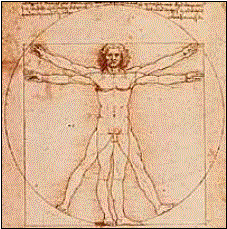Week One
|
Sep 4
|
 |
Course Overview, Introductions
|
 |
Definition, examples of technical writing
|
 |
“Chopping block” of technical writing
|
 |
Basic word processing/design principles
|
 |
Using
Microsoft Word Efficiently:
|
 |
Bring in one example of good technical design and one example
of poor technical design for next class.
|
 |
Note:
Markel's text is excellent; please read the material carefully and also
consult the many resources available on the text's website
|
 |
Read:
|
 |
Skim:
|
|
Week Two
|
Sep 9
|
Continued word processing strategies
Design principles
In-class exercise on design
Read:
|
Sep 11
|
 |
Visual Design and graphics
|
 |
In-class exercise on using and formatting visuals
|
 |
Read: Chapter 14 – Creating Graphics
|
|
Week Three
|
Sep 16
|
Visual Design and graphics (continued)
Principles for writing instructions
-
Tips for Creating Effective Computer
Instructions - website
-
How
to Write Instructions for Busy, Grouchy People -
Dr. Dennis Jerz website
(an excellent resource)
Lego block assignment
- handout
Read:
|
Sep 18
|
|
Week Four
|
Sep 23
|
 |
Task analysis exercise on Lego block assignment
|
 |
Instructions’ manual assigned
- handout
|
 |
In-class work on Full Shot software
|
|
Sep 25 – no class (work
independently)
|
 |
Work on Instructions’ Manual
|
 |
Continued work on using Full Shot
|
 |
Read: Chapter 10 – Drafting and Revising Coherent Documents
|
|
Week Five
|
Sep 30
|
 |
In-class work on Instructions’ Manual
|
|
Oct 2
|
 |
In-class work on Instructions’ Manual
|
|
Week Six
|
Oct 7
|
 |
Instructions’ Manual Due
|
 |
Parts’ Manual/Informational Brochure Assigned
- handout
|
 |
In-class
work on writing clear ad copy
|
 |
In class work on writing clear technical content and scanning items for manual
|
 |
Read:
|
-
Chapter
20 – Writing Instructions and Manuals
-
Chapter
18 – Writing Informal Reports
-
(Skim)
Chapter 19 – Writing Formal Reports
|
Oct 9
|
 |
In-class work on Parts’ Manual
|
 |
Principles of Report writing – Status Report Assigned - handout
-
Online Technical Writing - Progress
reports
(make sure to look at the example) - website
-
Tips
for Writing Short technical reports - website
-
Recommendation
and Feasibility Reports
(David McMurrey)
|
 |
Read: Chapter 6 – Communicating Persuasively
|
|
Week Seven
|
Oct 14
|
 |
Parts’ Manual due
|
 |
In-class work on Status Report
|
 |
Read:
|
-
Chapter
11 – Drafting and Revising Effective Sentences
-
Chapter
16 – Preparing Job-Application Materials (review Chapter 15,
if necessary – Writing Letters,
Memos, and E-mails
|
Oct 16
|
-
Status Report Due
-
Employment package assigned
- assignment
-
Letters
of application discussed -
examples provided
-
Chronological vs. Functional Résumés
|
Week Eight
|
Oct 21
|
-
Effective letters of application
-
Principles of Résumé design and content
-
In-class work on résumés and letters of application
|
Oct 23
|
|
Week Nine
|
Oct 28
|
 |
Employment package collected
|
 |
Principles of Writing Proposals
- assignment
-
Online
technical writing - Proposals website
-
A
Practical Guide to Writing Proposals website
Alice M. Reid, M.Ed
|
 |
Solicited and Unsolicited Proposals
|
 |
Proposal Assigned
|
|
Oct 30
|
 |
In-class work on proposals – Guest speaker
|
 |
Examples of proposals discussed
|
 |
Grants vs. Proposal – assignment
|
 |
Read:
|
|
Week Ten
|
Nov 4
|
-
Grant assignment collected
-
In-class work on proposals
-
Task analysis and peer review of proposals
-
Proposal presentation assigned (using PowerPoint)
|
Nov 6
|
 |
(Written) Proposal collected
|
 |
In-class work on proposal presentation
|
 |
PowerPoint fundamentals
|
 |
Read: Chapter 21 – Creating Web Sites
|
|
Week Eleven
|
Nov 11
|
 |
Proposal Presentations (in-class)
|
 |
Sign up for Geocities
website
|
 |
Geocities manual (note:
the manual is about 34 pages)
and principles of web publishing - assignment |
|
Nov 13
|
 |
Principles of web publishing (cont.)
|
 |
Good/bad web design and content discussed
|
 |
In-class Tutorial on Using Yahoo! GeoBuilder
|
|
Week Twelve
|
Nov 18
|
-
In-class work on website
-
Website plan assigned
|
Nov 20
|
 |
Principles of Web content
|
 |
Introduction to FrontPage 2002
|
|
Week Thirteen
|
Nov
25
|
 |
Website plan collected
|
 |
Additional work on FrontPage 2002
|
 |
In-class work on website
|
 |
Review: Chapter 22 – Making Oral Presentations
|
|
Nov
27 – Thanksgiving Holiday
|
|
Week Fourteen
|
Dec 2
|
 |
In-class work on website
|
 |
Oral Presentation on Website Assigned
- handout
|
 |
Principles of Effective Oral Presentations
|
|
Dec 4
|
 |
Principles of Portfolio Design
|
 |
Portfolio assigned
- handout
|
 |
In-class work on Portfolio and website
|
|
Week Fifteen
|
Dec 9
|
|
Dec 11
|
|
Exam
|
Tuesday, December 16, 2003: Meet at 10:15 am in NDH 249
–
Portfolios returned and discussed.
|
